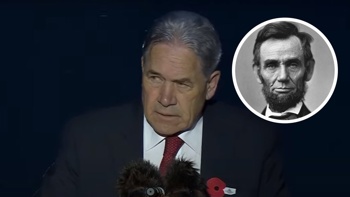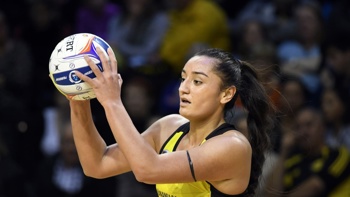"I've had a diary with fixed events and obligations for 27 years and I think I'll manage fine without one, but I want to see what it's like."
English said he knew his family wouldn't have always agreed with his actions while in politics, but he like to think when he was at his best, he represented the best of them.
English said the Raurimu shooting taught him Government could do harm if it didn't act with sensitivity on important issues.
English says his 2002 Fight for Life boxing experience was one he enjoyed greatly - even though one of his sons gave him flak for being a "skinny old white guy" when he saw the fight on TV.
"He was almost as good as he said he was some days" - English paid lighthearted respect to his predecessor John Key.
Because it is such a small country, New Zealand needed to tell a "positive story" to the world, to secure and maintain financial relationships with bigger countries, English said.
A pragmatic and practical solution to treaty settlements was the most efficient process English said he was part of in his political career.
The country's experience grappling with cultural differences put it in a better position than much older nations when adapting to new challenges faced by multiculturalism and social difference, he said.
Catholic values were about "the utter integrity of the individual person", English said.
English said he wanted to leave behind "the dangerous complacency of good intentions, of which there's too much in New Zealand."
"Social investment will roll on becuase ideas are powerful. Knowledge is powerful, more powerful than Government."
He thanked the public servants who helped him in drafting social investment policy.
"I just want to finish with a few remarks, particularly acknowledging my family who are here today, this has been our adventure," English said, choking up.
Politicians, including Prime Minister Jacinda Ardern, shook English's hand and embraced him before a waiata was performed.
Political history
English's political career began when he entered Parliament in 1990 at the age of 28. He became a Cabinet minister in 1996, one of the so-called Brat Pack of four young National ministers at the time.
He took over his party leadership in 2001 before suffering the biggest low of them all: National's historic defeat in 2002 under his leadership.
English largely rebuilt his political career and reputation under the leadership of Sir John Key.
As finance minister from 2008 until 2016, he was widely credited with nursing New Zealand through the global finance crisis.
He became National Party leader – and Prime Minister - at the end of 2016 after Sir John Key resigned.
An energetic campaign against new Labour leader Jacinda Ardern saw English lead the National Party to 44.4 per cent in the last election – just shy of its 2008 result.
However, it was not enough to secure him the role of Prime Minister again – NZ First which held the balance of power opted to side with Labour instead.









